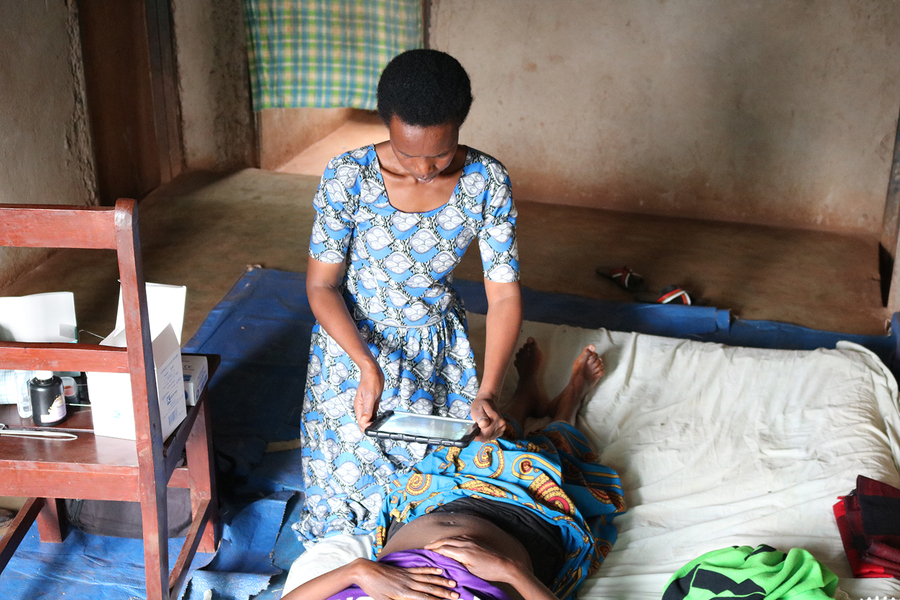IDEAS Alum: Insightiv featured in MIT News!

The world is facing a maternal health crisis. According to the World Health Organization, approximately 810 women die each day due to preventable causes related to pregnancy and childbirth. Two-thirds of these deaths occur in sub-Saharan Africa. In Rwanda, one of the leading causes of maternal mortality is infected Cesarean section wounds.
An interdisciplinary team of doctors and researchers from MIT, Harvard University, and Partners in Health (PIH) in Rwanda have proposed a solution to address this problem. They have developed a mobile health (mHealth) platform that uses artificial intelligence and real-time computer vision to predict infection in C-section wounds with roughly 90 percent accuracy.
“Early detection of infection is an important issue worldwide, but in low-resource areas such as rural Rwanda, the problem is even more dire due to a lack of trained doctors and the high prevalence of bacterial infections that are resistant to antibiotics,” says Richard Ribon Fletcher ’89, SM ’97, PhD ’02, research scientist in mechanical engineering at MIT and technology lead for the team. “Our idea was to employ mobile phones that could be used by community health workers to visit new mothers in their homes and inspect their wounds to detect infection.”
This summer, the team, which is led by Bethany Hedt-Gauthier, a professor at Harvard Medical School, was awarded the $500,000 first-place prize in the NIH Technology Accelerator Challenge for Maternal Health.
“The lives of women who deliver by Cesarean section in the developing world are compromised by both limited access to quality surgery and postpartum care,” adds Fredrick Kateera, a team member from PIH. “Use of mobile health technologies for early identification, plausible accurate diagnosis of those with surgical site infections within these communities would be a scalable game changer in optimizing women’s health.”
Training algorithms to detect infection
The project’s inception was the result of several chance encounters. In 2017, Fletcher and Hedt-Gauthier bumped into each other on the Washington Metro during an NIH investigator meeting. Hedt-Gauthier, who had been working on research projects in Rwanda for five years at that point, was seeking a solution for the gap in Cesarean care she and her collaborators had encountered in their research. Specifically, she was interested in exploring the use of cell phone cameras as a diagnostic tool.
Fletcher, who leads a group of students in Professor Sanjay Sarma’s AutoID Lab and has spent decades applying phones, machine learning algorithms, and other mobile technologies to global health, was a natural fit for the project.
“Once we realized that these types of image-based algorithms could support home-based care for women after Cesarean delivery, we approached Dr. Fletcher as a collaborator, given his extensive experience in developing mHealth technologies in low- and middle-income settings,” says Hedt-Gauthier.
During that same trip, Hedt-Gauthier serendipitously sat next to Audace Nakeshimana ’20, who was a new MIT student from Rwanda and would later join Fletcher’s team at MIT. With Fletcher’s mentorship, during his senior year, Nakeshimana founded Insightiv, a Rwandan startup that is applying AI algorithms for analysis of clinical images, and was a top grant awardee at the annual MIT IDEAS competition in 2020.
Click here to read the full article on MIT News
Tags: Health, IDEAS, IDEAS 2020, IDEAS Alumni Profiles, PKG Alumni, Tech for Good
